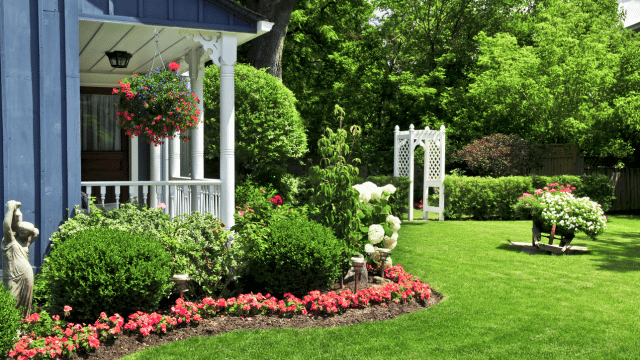Gardening is a great hobby that lets you connect with nature, make your area look better, and enjoy the results of your hard work. Having a garden that grows is a rewarding experience that brings a lot of joy and happiness, no matter how big or small your garden is. This piece has seven tips from gardening experts that will help you grow a garden and keep it healthy.
Benefits of Gardening
There are many benefits to gardening besides just making your yard look nicer. It is a great way to reduce stress, make you feel better mentally, and improve your health all around. When you spend time in the yard, you can connect with nature and enjoy the peace it brings. Gardening is also a great way to stay busy and burn calories. Taking care of plants and seeing them grow can also give you a sense of purpose and success, which can boost your confidence and self-esteem.
Essential Tools and Supplies for Gardening
Having the right tools and materials is very important for growing a garden that does well. A strong shovel, a hand trowel, a garden hoe, a watering can or hose, pruning shears, and a wheelbarrow are some of the most important tools you will need. You can dig, plant, pull weeds, water, and take care of your yard better with these tools. Buying good dirt, compost, fertilizers, and seeds or seedlings of the plants you want is also important for giving them the nutrients and support they need to grow in a healthy way.
Choosing the Right Plants for Your Garden
Choosing the right plants is important for a garden to do well. Think about things like the weather, the type of soil you have, how much sunlight you can get, and how much time you can spend on upkeep. Pick plants that will do well in the conditions you have and that need about the same amount of water and sunshine. This will help your plants grow well and lower the chances that they will get stressed out or die. Additionally, switch up the plants you use to make your yard interesting to look at.
Preparing the Soil for Planting
A very important part of making a garden that does well is getting the dirt ready. First, clear the place where you want to plant of any grass or weeds. To improve air flow and drainage, break up the earth with a garden fork or tiller. Add organic matter to the soil, like compost or manure that has been broken down, to give it nutrition and make it stronger. Get rid of any rocks or other things that could stop plants from growing. The last step is to level the dirt so that it is ready to plant and water evenly.
How to Water and Fertilize Plants Correctly
For your plants’ health and growth, it’s important to water and feed them the right way. Deeply water your plants only a few times a week, and let the soil dry out a bit in between. This helps the plant grow deep roots and keeps it from getting too much water. To get water right to the plants’ bases, use a watering can or hose with a tip attached. Follow the directions on the package for a balanced fertilizer or an organic option when you need to feed your plants. If you fertilize too much, the roots of the plants can get burned and suffer damage.
Managing Pests and Diseases in Your Garden
Pests and diseases can hurt your garden’s health. To keep these threats at bay, you need to use the right pest control methods. Check your plants often for signs of pests or diseases, and if you find any, take the right steps. This could mean picking out bugs by hand, using natural ways to get rid of pests, or using animals that eat bugs. Keeping your yard clean by doing things like getting rid of dead plants or leaves can also help stop the spread of diseases
Pruning and Maintaining Your Plants
Pruning your plants is an important task that helps them stay healthy and look good. Getting rid of dead or damaged stems on a regular basis will help new ones grow and stop diseases from spreading. You can prune your plants when they are dormant or when they are done blooming. If there are plants that need extra support, add support structures like poles or trellises. Check often for signs of pests, diseases, or a lack of nutrients, and take care of any problems right away.
Harvesting and Enjoying the Fruits of Your Labor
Getting to harvest and enjoy the fruits of your work is one of the best parts of gardening. Watch your plants for changes in color or hardness that mean they are ready to be picked, and then pick them at the right time. Pick fruits and veggies carefully so you don’t hurt the plant. You can eat the fresh food you’ve grown yourself or give it to your family and friends. You should be proud that you took care of these plants and now they have given you a tasty harvest.
conculsion
A garden that grows well needs understanding, patience, and hard work. You can make and take care of a garden that brings you joy, beauty, and a sense of accomplishment if you follow these seven expert tips. Make sure you pick the right plants, prepare the soil, water and fertilize them properly, keep an eye out for pests and diseases, prune and care for your plants, and then enjoy the results of your hard work. You can keep learning about gardening, so don’t be afraid to try new things, make mistakes, and change how you do things. Take pleasure in the process of growing and see how it grows as you care for it.


